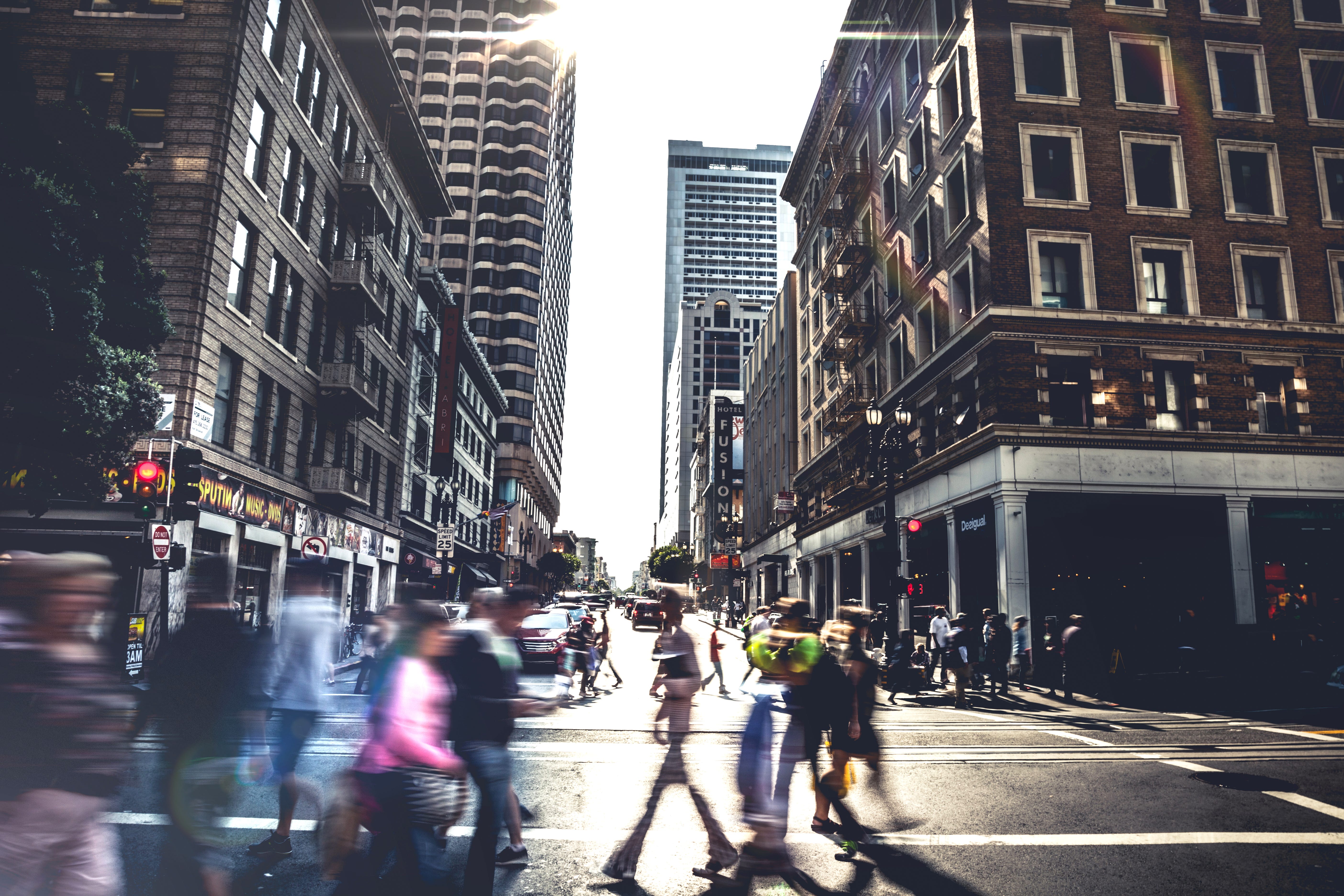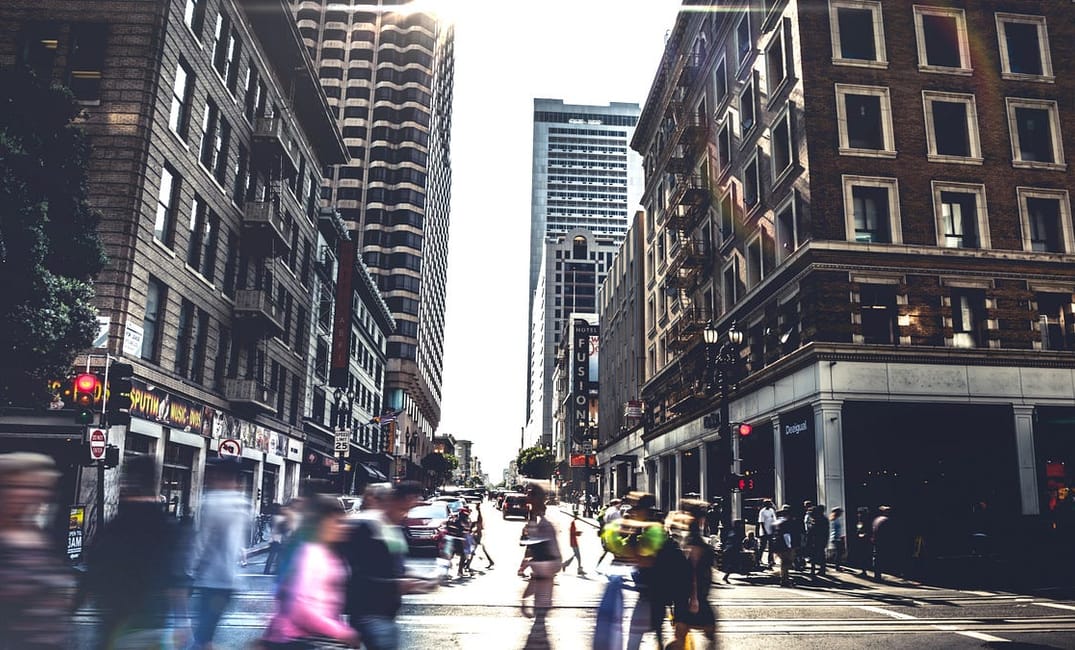
I didn’t know what to expect when my 16-year-old son and I made plans to travel to San Francisco for the first wave of his college tours. We rarely hang out, just the two of us. In an embarrassingly old-fashioned approach to gender roles, my husband usually grabs that quality time, while I focus more on our two teenage daughters.
The trip from Seattle to the Bay Area would provide an opportunity for mother-son bonding, but I worried the weekend could devolve into a festival of bickering over my slow driving, his rap music, and our shared, unspoken anxiety about the swift evaporation of his childhood.
And then there was the specter of San Francisco itself, a place that had always left me feeling melancholy and unmoored. In my mind, San Francisco belonged to my mother. I experienced the city’s inherent contradictions — grace and grime, wealth and poverty, culture and counterculture — as a reflection of her. Leaving me behind with my grandparents in Arizona, she’d fled to the Bay Area a few years after the Summer of Love, where for more than a decade, she’d lived in a broken-down residential hotel on Eddy Street. I don’t recall a goodbye.
Few memories survive from the year I turned eight, so I can only assume that’s when she disappeared. I think I must have blocked out the worst of the pain. Long stretches of my childhood passed without word from her. Years in which I searched the faces of the strangers in every crowd, hoping to find her there, not knowing that she’d made a new kind of home for herself in the Tenderloin. A home that didn’t include me. Only after I became a mother myself could I begin to imagine the kind of frantic sorrow that might send a woman in her thirties on the run.
I traveled to San Francisco for the first time at 21, to see her again. My grandmother arranged the trip as a surprise birthday gift. I realize now that my grandmother probably always knew where my mother was, but tried to protect me from the complete truth until I reached adulthood. I can’t remember many details from that sudden and confusing reunion, beyond the hugs and kisses my mother bestowed upon me and the tears we both shed, but one exchange proved unforgettable: “Why didn’t you write or call?” I asked. “Well, to be honest,” my mother said, “being a drug addict takes a lot of time.”
A wash of grief always flooded my body whenever I returned to the city that, for me, represented the losses the two of us had shared.
I flew to San Francisco to see her again the following year. This time our conversations dug deeper, but not deep enough to soothe me. A third reunion followed, then the old patterns surfaced: She took months to respond to my letters, if she responded at all, until the pain of trying to connect around her heroin addiction felt too great. I stopped trying. Four years later when my mother overdosed, our estrangement became permanent. In the decades that followed, the sorrow I felt about her life and death ebbed and flowed, but a wash of grief always flooded my body whenever I returned to the city that, for me, represented the losses the two of us had shared.
When my own children were small, my husband’s job brought us to Silicon Valley, and I lived in San Francisco’s shadow for a decade. Whenever we ventured into the city to check out a museum or meet friends in Golden Gate Park, I struggled to be present, to ignore the ache that throbbed like the bass line beneath the melody of our days together. In time, happy memories of our family’s adventures there started to accrue alongside older hurts. I shared my mother’s story with my children in the broadest of strokes, never acknowledging the disquiet I felt about the place. I wanted my kids to love San Francisco the way the world loved it. That my son would consider returning for college years after we’d moved to the Pacific Northwest indicated I’d succeeded.
At the University of San Francisco, G told the admissions rep that he planned to study math, and we laughed when another prospective math major shot him an eager thumbs up from across the room. On the campus tour, we climbed hills and marveled at the spectacular views of the city and the bay. June sunshine, paired with a cool breeze, made it easy to imagine him happy here.
I didn’t want to lose this feeling that San Francisco could become something welcome and new: my son’s potential future rather than my painful past.
Afterward, G asked to visit a hip-hop clothing store in Hayes Valley, a neighborhood I’d never visited before. My 6-foot-1-inch boy appeared unashamed to be shopping with mom, so I bought him a sweatshirt as a reward. Later, we wandered into a packed French bistro for dinner and accepted seats at the counter. As the staff chatted with one another in French, I joked that my son should practice his foreign language skills when placing his order, and to my surprise, he did. When talk behind the counter turned to an upcoming French soccer match, my son, a soccer player, listened intently. I took a sip of wine and silently declared the trip a success.
Only at that moment did it hit me: I’d been so focused on my son, I hadn’t thought about my mother all day. I took a breath, anticipating the rush of sorrow, but nothing came, just a prick of guilt. Letting go can feel like a betrayal at first, even when letting go takes decades. I looked at G, staring at the television above the bar, eating his French fries. Mom, do you see this boy? I thought. You would like him so much.
Had I ever told G that my mother had lived here? I wasn’t sure. I could tell him now, but I didn’t want to lose this feeling that San Francisco could become something welcome and new: my son’s potential future rather than my painful past. There would be other opportunities to offer my family history to him if I chose. If he asked. That history would always live in me, even if the emotions surrounding it had shifted. At 53, I was now the same age my mother had been at her death, but the life I’d made for myself had never felt more different. I might even learn to love it here.







